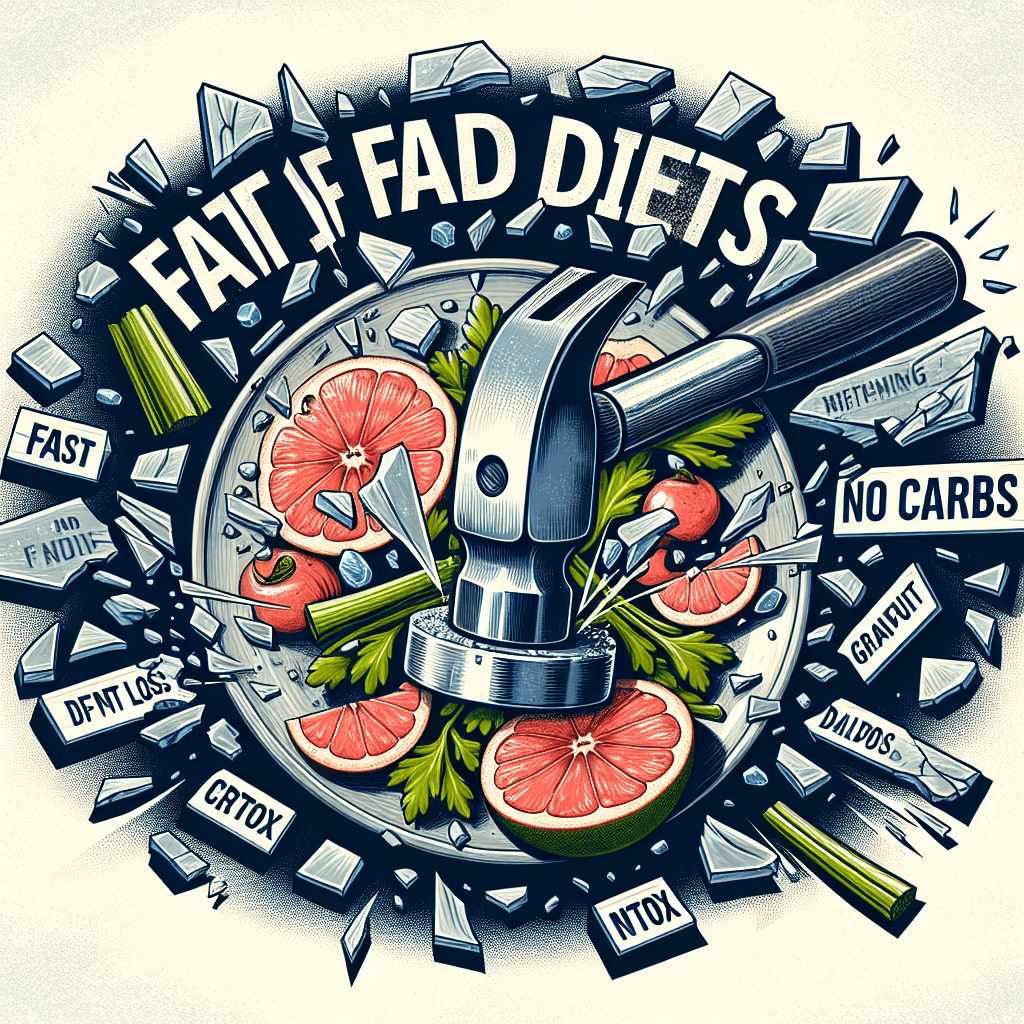With the rise of social media influencers and celebrities endorsing various fad diets, it can be challenging to separate fact from fiction when it comes to weight loss. Many popular diets promise quick results and easy solutions, but the truth is that most fad diets are not sustainable in the long term and can even be harmful to your health. In this article, we will debunk some of the most common myths surrounding fad diets and provide you with evidence-based information to make informed decisions about your health and well-being.
Myth 1: Fad Diets Guarantee Rapid Weight Loss
One of the biggest misconceptions about fad diets is that they guarantee rapid weight loss. While it is true that some fad diets may lead to quick initial weight loss, this weight loss is often unsustainable and can be detrimental to your overall health. Most fad diets restrict calorie intake to an unhealthy level or eliminate entire food groups, leading to nutrient deficiencies and muscle loss. In the long run, these diets can slow down your metabolism and make it even harder to lose weight in the future.
Myth 2: Fad Diets Are Effective for Everyone
Another common myth surrounding fad diets is that they are effective for everyone. The truth is that each person is unique, and what works for one individual may not work for another. Fad diets often promote a one-size-fits-all approach to weight loss, ignoring individual differences in genetics, metabolism, and lifestyle. It is essential to consult with a registered dietitian or healthcare professional before starting any new diet to ensure that it is safe and effective for your specific needs.
Myth 3: Fad Diets Are Sustainable in the Long Term
Many fad diets promote quick fixes and short-term results, but they are rarely sustainable in the long term. In fact, research shows that most people who follow fad diets end up regaining the weight they lost and even gain more weight in the long run. Sustainable weight loss requires a balanced diet, regular physical activity, and healthy lifestyle habits that can be maintained over time. Instead of jumping from one fad diet to another, focus on making small, realistic changes to your eating and exercise habits for long-lasting results.
Myth 4: Fad Diets Are Healthy for Your Body
While fad diets may promise quick results, they are often not healthy for your body in the long term. Many fad diets eliminate essential nutrients and food groups, leading to nutrient deficiencies and other health problems. Some fad diets can also have negative side effects, such as fatigue, dizziness, and digestive issues. It is important to prioritize your health and well-being over quick fixes and trendy diets, and choose a balanced and sustainable approach to weight loss.
Conclusion
Breaking down the myths of fad diets is essential to making informed decisions about your health and well-being. While fad diets may promise quick results, the reality is that they are often not sustainable, effective, or healthy in the long term. Instead of falling for the latest diet trends, focus on making small, realistic changes to your eating and exercise habits for long-lasting results. Consult with a registered dietitian or healthcare professional before starting any new diet to ensure that it is safe and effective for your specific needs. Remember that there is no magic solution to weight loss, and a balanced diet, regular physical activity, and healthy lifestyle habits are key to achieving your health goals.
FAQs
Q: Are fad diets safe for weight loss?
A: Fad diets are often not safe for weight loss as they can lead to nutrient deficiencies, muscle loss, and other health problems in the long term. It is important to prioritize your health and well-being over quick fixes and choose a balanced and sustainable approach to weight loss.
Q: How do I know if a diet is a fad diet?
A: Fad diets often promote quick results, eliminate entire food groups, or restrict calorie intake to an unhealthy level. They may also rely on testimonials and endorsements from celebrities or influencers. Consult with a registered dietitian or healthcare professional to determine if a diet is safe and effective for your specific needs.
TIP: Focus on Sustainable Habits
Instead of falling for the latest fad diet, focus on developing sustainable eating and exercise habits that you can maintain over time. Choose whole, nutrient-dense foods, stay hydrated, get regular physical activity, and prioritize your overall health and well-being. Remember that small, consistent changes are key to long-lasting weight loss and improved health.
#Breaking #Myths #Fad #Diets

